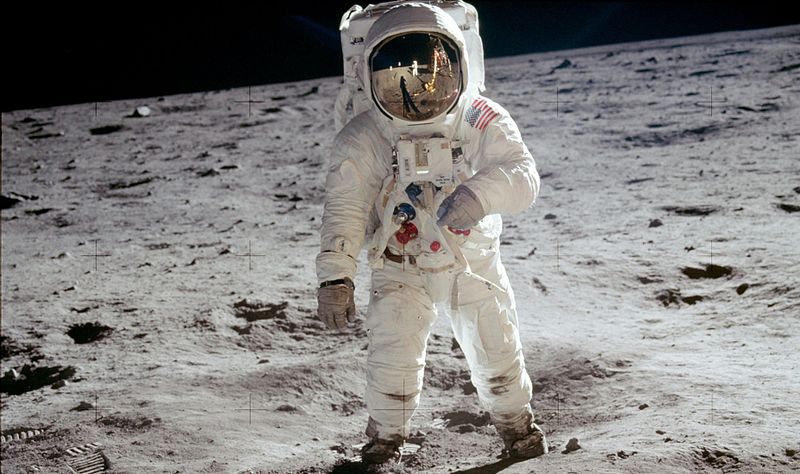As a fellow space nerd, I welcome the editors of The Line to our number:
You’ve probably noticed by now that your Line editors are space enthusiasts. It’s been an interesting few weeks on that front. Sir Richard Branson flew out of the atmosphere, into free-fall (not zero-G, you scientific illiterates!), on a Virgin Galactic space plane. That said, he didn’t get high enough to cross the Kármán line, which, in the absence of any real international agreement on where the Earth ends and space begins, is as close as we come to a functional definition of the edge of space. (It’s an altitude of 100 km, for those wondering.) Jeff Bezos, of Amazon wealth and fame, did cross that line this week, along with three passengers, including Wally Funk, which was cool, if you’re into that sort of thing. (We are.) Bezos was riding a Blue Origin New Shepard rocket; Blue Origin is a company he founded and funded with his own gigantic wealth.
Look, let’s face facts — your Line editors are into space. We just are. But yeah, we agree that space policy is important enough and complicated enough to warrant debate. Reasonable people can have different views on this stuff. And we also agree that there are important debates to have about the accumulated wealth of billionaires, and the distorting effects that wealth can have on politics and society.
But unlike a bunch of ya’ll, we don’t get confused about a debate over income inequality and a debate over space travel. You can despise Bezos, Amazon and everything he’s done there, and still recognize that what he is doing on the space front is important. Everyone rolling their eyes at Bezos matching space flight capabilities that the Soviets and Americans achieved literally 60 years ago is allowing their desire to rack up some sweet Twitter likes with a snarky dunk blind themselves to the fact that Bezos (and Elon Musk’s SpaceX, which is way ahead of Blue Origin) aren’t just recreating earlier capabilities, they are massively improving on them.
So yeah, Blue Origin can now do what the Soviets and U.S. could do 60 years ago, but they’re doing it more safely, more efficiently and much, much more sustainably than national space agencies did. Reusability isn’t a frill, it’s a massive game-changer. And as much fun as it is to snort when these private-sector companies recreate an existing capability, do you really think they’re going to stop there?
Branson’s company could be written off as a tourism play for the affluent. Fair enough. Except that making space flight economically viable is the first step to ensuring that capability is both sustainable and more broadly accessible in the long run. Further, Bezos and especially Musk are inventing new and transformative space-flight capabilities. They are materially pushing back against the final frontier in ways that we simply have not before. It won’t matter unless we choose to do anything with these new capabilities, and your guess is as good as ours as to whether or not we will. But we could. That’s huge.
As huge as the gigantic dick-shaped rocket Bezos rode up. Yeah, yeah. We snorted, too. But, like, seriously, folks — making penis jokes about the shape of an object dictated by aerodynamic considerations isn’t quite as witty as you think: the rockets are shaped like penises because they literally have to be in order to work. Having a giggle is fine, but if you actually think you’re making a real point about misogyny and fragile male egos when you get snippy (ahem) about a schlong-shaped rocket, well, we’d love to see what happens when your very emotionally vigorous and feminist vagina-shaped space vehicle hits max Q. So long as we aren’t aboard it or in the landing area for its hurtling debris.
Our main point still stands: don’t let your cynicism and even revulsion at these guys blind you to what they’re doing. Bezos isn’t gonna stop at Yuri Gagarin-vintage accomplishments. Musk sure hasn’t. This’ll matter. It’s time to get serious. They are.





